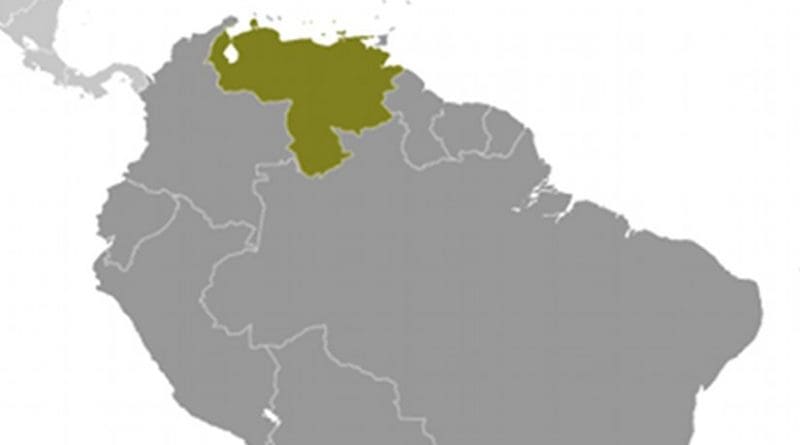Venezuela: Constant Violations Of Media Freedom
Reporters Without Borders (RSF) said it is very worried about the constant decline in respect for freedom of expression that has accompanied the growing economic and social crisis in Venezuela since the start of the year. After the recent big demonstration in Caracas by political parties opposed to President Nicolas Maduro’s government, which several leading foreign journalists were prevented from covering, RSF has sounded the alarm and looks back at recent key events.
The international reporters denied entry to Venezuela on the eve of the protest included Marie-Eve Detoeuf (also known by the pseudonym of Marie Delcas), a reporter for the French daily Le Monde, who was put on a flight to Bogotá after being deemed “inadmissible” under Venezuela’s immigration laws.
The same vague grounds were used to deny entry to Colombian reporters César Moreno of Radio Caracol and Dora Glottman of Caracol TV and US reporters John Otis of NPR and Tim Wyss of the Miami Herald. Al-Jazeera’s Teresa Bo and Lagmi Chávez also suffered the same fate.
Also related to the the opposition march, several journalists from TV News channel NTN24 reported that they were targeted with threats and verbal abuses by the National Gard.
These acts of censorship are just the latest in a series of disturbing developments for media freedom in Venezuela:
- 30 August: The headquarters of El Nacional, one of Venezuela’s leading dailies, was attacked by masked men who threw Molotov cocktails and excrement at his facade and left a leaflet entitled, “Is the 1 September protest the beginning of the end?” It was signed by “Chama Pueblo en Rebelión,” a pro-government group that previously vandalized the newspaper’s headquarters in June.
- 24 August: Gunmen fired about 30 shots at the entrance to the headquarters of the Diario de Los Andes, a newspaper based in the western city of Valera, without causing any injuries.
- 20 June: Two individuals on a motorcycle threw a grenade at the headquarters of the Maracay-based daily El Aragüeño, scattering leaflets with the message, “Digan la Verdad” (Tell the truth). Fortunately, the grenade did not explode.
- 14 June: Five individuals vandalized the headquarters of the Ciudad Guayana-based newspaper Correo del Caroní, whose editor, David Natera Febres, was given a four-year jail term in March in connection with its coverage of alleged corruption involving a state-owned company.
- 2 June: During street protests in Caracas against the economic crisis and food shortages, local and national media representatives were targeted by soldiers, police and some demonstrators. At least 19 journalists were the subject of various forms of aggression – including physical and verbal attacks, threats and the seizure or destruction of equipment – in the space of two hours, according to the NGO Espacio Público.
- 21 April: The national guard forcibly expelled 13 journalists who were covering an event involving several parliamentarians at the headquarters of the National Electoral Council (CNE), which is examining the opposition’s application to hold a referendum to recall President Maduro. The journalists then had to flee from a group of pro-government demonstrators at the entrance to the CNE building. Stones were thrown at CNN en Español reporter Osmary Hernández’s vehicle, breaking three of its windows.
- 19 April: Unidentified individuals smashed the windows of the premises of VTV, Venezuela’s state-owned national TV broadcaster, in the Caracas suburb of Sucre. Unlike other attacks on media outlets, this one elicited strong condemnation by several government officials.
- 17 March: The Valencia-based daily El Carabobeño, one of Venezuela’s oldest newspapers, announced that it was printing its last issue because of the newsprint shortage that has affected the circulation of at least 46 newspapers in 15 of Venezuela’s states since August 2013.
“Venezuela’s grave political and economic crisis does not in any way justify this series of attacks and acts of intimidation against the news media,” said Emmanuel Colombié, the head of RSF’s Latin America desk.
“The argument of a ‘media war’ often raised by President Maduro in order to discredit the national and international media’s criticism of his government is unacceptable. It just exacerbates an already very tense climate for journalists. The provision of news and information is more essential than ever in these troubled times. The Venezuelan authorities must therefore do everything possible to guarantee an acceptable environment for the media.”
As well as the emblematic cases cited above, there have been many other cases of attacks against journalists, arbitrary arrest, public insults by senior government officials and actions designed to block information.
According to the Press and Society Institute (IPYS), a local NGO that monitors respect for media freedom, there have been no fewer than 13 attacks against media outlets since the start of the year. The National Press Workers Union (SNTP) has reported 176 media freedom violations since the start of the year, including 62 cases of intimidation and 22 acts of aggression.
The police are acting in an increasingly hostile manner towards reporters covering demonstrations and food lines. The protests – which have steadily grown in frequency and have received increasing media coverage since 2014 – are systematically accompanied by acts of aggression towards local and foreign reporters, including threats, insults, theft of equipment, destruction of equipment and arbitrary arrest.
Foreign reporters who wanted to cover last December’s parliamentary elections had to sign a good conduct pledge in which they accepted that their accreditation could be withdrawn if they fail to comply with certain conditions.
The United Nations and Inter-American Commission on Human Rights special rapporteurs on freedom of expression wrote to the Venezuelan government on 4 August expressing deep concern about the erosion of media freedom in Venezuela.
RSF pointed out that the Venezuelan government never implemented any of the 12 recommendations on freedom of expression that were made during Venezuela’s Universal Periodic Review by the UN Human Rights Council in 2011.
Venezuela is ranked 139th out of 180 countries in RSF’s 2016 World Press Freedom Index.

